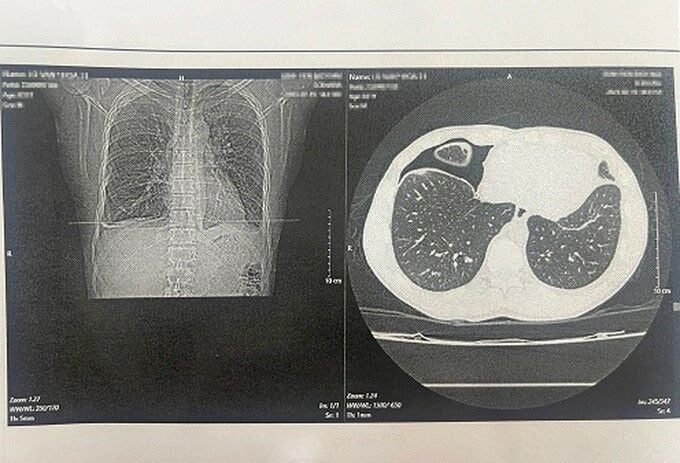Raw crab leads to life-threatening lung fluke infection in Vietnamese man

A 31 year old man was hospitalised after coughing up blood and suffering from pulmonary inflammation, caused by a lung fluke infection contracted from consuming raw crab salad at a friend’s house.
On August 10, Vietnamese newspaper Tuoi Tre reported that a 31 year old man was admitted to a local hospital after contracting a lung fluke infection (Paragonimiasis) from ingesting a raw crab salad.
The man disclosed that approximately a month earlier, he had eaten the dish at a friend’s house. Not long after, he began displaying symptoms such as fatigue, weight loss, nausea, breathlessness, exhaustion, and coughing whilst moving. Initially, his condition was undiagnosed until he visited a tropical disease centre where testing for lung flannel worm yielded positive results.
The newspaper report indicated that the physicians explained lung fluke as a disease caused by the parasite, Paragonimus westermani. It can infect people of all ages and is common among individuals who typically consume raw or undercooked foods in Vietnam, predominantly in the northern mountainous provinces where the consumption of raw shrimp and crabs is a cultural practice, reported Sanook.
Shrimp and crabs host the lung fluke’s larvae. Once consumed, these larvae penetrate the intestinal walls, migrating through the abdominal cavity, and diaphragm and entering the lungs, living in lung tissue. After a period of infection, patients begin experiencing chest pain, lingering coughs, coughing up phlegm and blood, weight loss, and fatigue, which, in dire cases, can lead to fatality.
Physicians emphasize that lung fluke infections often present symptoms such as hemoptysis and chest tightness, which can lead to misdiagnosis as tuberculosis, pneumonia, or lung cancer.
They advise the public, particularly those in mountainous areas, to consume well-cooked food and boiled water while avoiding raw and undercooked items. The presence of persistent symptoms such as prolonged cough, difficulty breathing, and chest pain should encourage individuals to get tested for lung flukes to prevent confusion with other lung diseases.
Latest Thailand News
Follow The Thaiger on Google News:


























